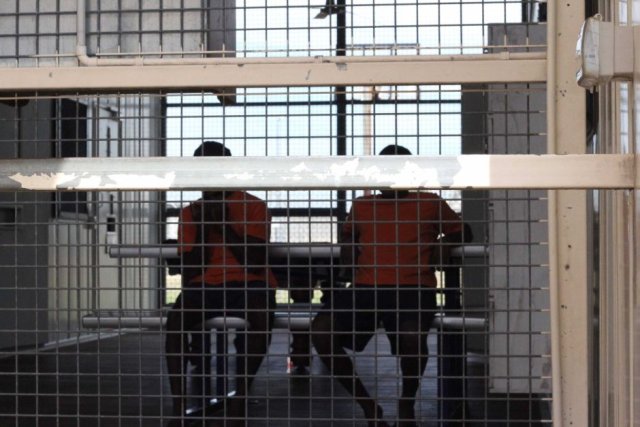
Northern Territory Attorney-General John Elferink was at an Amnesty International debate at Charles Darwin University on June 15, defending the position that “tough love” was necessary to reduce youth crime in the NT.
As he was speaking, a 16-year-old was successfully breaking out of the Don Dale youth detention centre.
According to an ABC News report, this was the eleventh break-out from the decrepit detention centre since August last year — showing that “tough love” is not working.
Darwin has three detention sites in operation: the Don Dale youth detention centre, the old Berrimah prison and the newly constructed Holtze prison precinct.
Don Dale and Berrimah are in appalling condition, to the extent that on May 12 two youth offenders were sent to the adult prison Holtze instead — despite reservations by the magistrate. These reservations were based both on how easy it was to escape the decrepit Don Dale, and that the run-down centre was no place for a young person.
In her remarks, according to ABC News on May 12, Magistrate Elizabeth Morris said: “I don't see why anybody should be held in those conditions ... The infrastructure, training, and repair needed at this stage make it an inappropriate facility.
"I have some doubts about the efficacy of this order, but it is a very short period of detention."
The NT has the highest rates of youth detention in Australia. Forty-nine youths are serving sentences in detention. The only other state with a comparable overall population is Tasmania with nine.
These figures hide the true extent of youth detention in the NT. Far more youth, usually from unstable families, currently languish in detention on remand. This is to say that more young people are in detention without having been convicted of an offence, while waiting for their cases to be heard.
It is also worth noting that 96% of those in youth detention are those from Aboriginal backgrounds, whose disadvantage has long been the subject of outraged international reports.
The Attorney-General came from a background of abuse and crime to reach his current position. In the debate, Elferink used his disadvantaged background to argue for more “tough love” measures — and the NT has experimented with a few.
In the 1980s, the NT had “boot camps” for young offenders, emphasising hard labour as a way to reform. In the '90s, mandatory sentencing was applied to young people, meaning three strikes and you were inside.
Jonathon Hunyor is the principal for the North Australian Aboriginal Justice Association. He also spoke at the debate and said that “tough love” was just code for “tough” and “these young people have had quite enough of tough”.
Hunyor said that putting young people in detention encouraged reoffending. Prisons were “universities of crime, and we’re pumping out the graduates in the NT”. He said that not only were these policies leading to higher rates of reoffending, they came at an opportunity cost that meant other, more effective policies could not be applied.
Indeed, when the Country Liberal Party government was elected in 2012, they began a series of cuts to diversion programs that kept young people out of prison. The cuts were initially popular but opinion soon turned as youth crime grew. The CLP had programs that reduced reoffending but dropped them in the name of “tough love”.
Colleen Gwynne, the NT children’s commissioner opposed “tough love” and said at the debate that any dealings with young people in the criminal justice system needed to be “trauma-informed”.
"I don't think there's too many people in the youth justice system now that don't have a story to tell," she said. "Most of the young people in our system are vulnerable for a number of reasons, disadvantaged and they've endured significant trauma."
Gwynne said troubled kids were most often "not from middle class families, or if they are, it's few and far between".
"We can't treat kids the way we treat adults. There are some fundamental differences with their minds; parts of their brains haven't even developed yet."
Gwynne was a frontline police officer for 25 years. She said that, for most youth offenders, their "first memory is waking up in dog faeces, not having a clean house, not having anyone to love them, not having a meal on the table and not knowing who their parents are".
“We need to get them to want something better.”
Like the article? Subscribe to Green Left now! You can also like us on Facebook and follow us on Twitter.